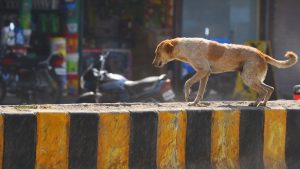Supreme Court’s Order On Delhi Stray Dogs Sparks Debate: Here’s How Countries Worldwide Handle Them
The Supreme Court’s recent order on managing Delhi’s stray dog population has triggered a wave of discussions across the nation. For some, it is a long-awaited step toward addressing a pressing urban challenge. For others, it raises concerns about animal rights and humane treatment. In the capital city where stray dogs are a part of daily life for millions, the ruling has not only made headlines but also stirred emotions.
Animal welfare groups worry about the potential misuse of the order, while residents dealing with aggressive stray packs believe stricter management is necessary. The court’s move has effectively brought the decades-old conversation about coexistence versus control into the national spotlight.
The Heart of the Debate
At the core of the debate is the balance between public safety and compassion. Delhi has a stray dog population estimated in the hundreds of thousands, often concentrated in certain neighborhoods where garbage disposal systems are poor. While many dogs are harmless and even friendly, incidents of bites and attacks have sparked calls for stronger action.
The Supreme Court order focuses on regulating feeding zones, better sterilization programs and clear accountability for municipal bodies. However, some animal lovers fear that the emphasis on control could overshadow humane approaches.
How the World Handles Stray Dogs
Globally, countries have tackled the stray dog issue in diverse ways. In Turkey, for instance, municipal shelters and community feeding programs coexist, reflecting a culture that embraces street dogs as part of urban life. Thailand leans heavily on sterilization drives supported by NGOs to keep the population stable without resorting to culling.
In contrast, countries like Australia have strict animal control laws where stray or unregistered dogs are quickly placed in shelters and, if unclaimed, may face euthanasia. Romania, once infamous for mass culling, shifted toward adoption campaigns after international pressure. United States cities combine adoption efforts with microchipping and licensing to ensure responsible ownership.
India’s own challenge is complicated by limited infrastructure, cultural attitudes toward animals and legal protection of stray dogs under the Prevention of Cruelty to Animals Act.
Voices from the Ground
For many Delhi residents, stray dogs are more than just statistics. Some recall moments of loyalty and protection from neighborhood dogs that act as informal guardians. Others have heartbreaking memories of dog bites that left children hospitalized. Street vendors, joggers and sanitation workers often have strong, mixed feelings — admiration for the animals’ resilience paired with frustration at the lack of coordinated care.
Animal activists argue that sterilization, vaccination and community participation can solve the issue without cruelty. “The problem is not the dogs, it’s how we manage waste and urban space,” says one volunteer from a Delhi NGO. On the other hand, some residents believe stricter controls are necessary for public safety, especially in high-density urban areas.


The Way Forward
Experts agree that India’s path forward must balance compassion with practicality. The Supreme Court’s order could be a turning point if it encourages efficient sterilization drives, regulated feeding practices and stronger municipal accountability. Public awareness campaigns will also be essential in helping citizens understand how to coexist safely with stray dogs.
The challenge is to avoid polarizing the issue into a fight between “dog lovers” and “dog haters” and instead approach it as a shared responsibility. With the right combination of law enforcement, infrastructure investment and humane care, Delhi could become a model for other Indian cities grappling with similar issues.
Conclusion: A Chance for Change
The Supreme Court’s order is not just a legal directive — it is an opportunity to rethink how India treats its stray animals. This moment demands collaboration between authorities, citizens and animal welfare groups. If handled with empathy and efficiency, Delhi could show the world that it is possible to protect public safety while honoring the lives of the animals that have walked its streets for generations.

Also read: https://channel6network.com/west-bengal-welcomes-first-ac-local-train/

